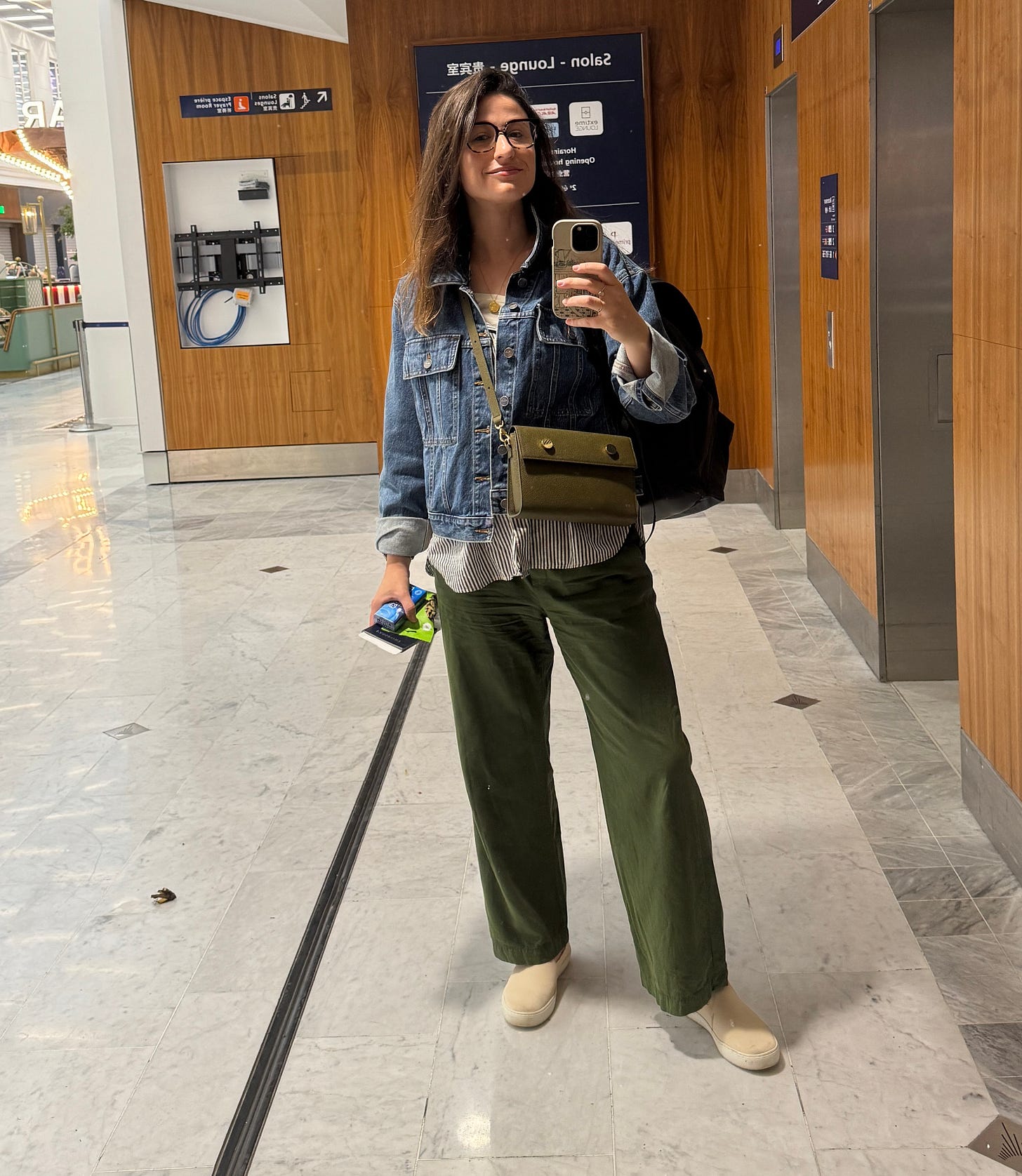On shopping in Paris
Thoughts and a few recommendations from a reluctant shopper
“Do you know where your moderator found her boots?” Asked a friend the morning after attending my talk at Albertine last month. I inquired. The response came with a laugh—she gets a lot of compliments on those boots! But they were unearthed at a random store near the Trévi fountain in Rome many many years ago. Maybe they were an original design, maybe they weren’t. But they elusive and therefore they carried a certain value.
I thought about this as I’m working on a project that requires me to consider all that Paris has to offer, including its most special and original destinations— shops among them.
Paris is forever sold as a shopping paradise. A city you visit and emerge from with a suitcase full of it-bags and pharmacy finds, kitchen accessories, vacuum-sealed Bordier butter (it’s a thing and it’s quite smart), luxury candles, antiques, and a slew of other items meant to make travelers feel imbued with Parisian savoir-vivre. You know how I feel about a “haul” — it makes my stomach turn to contribute to that narrative— but I did want to talk shopping in my own way as there is a reality that is more stark today than it was when I was writing The New Paris. Even then, it was impossible to ignore that truly artisanal crafters and indie brands worth talking about were growing increasingly rare. Depressingly, they’re far rarer today.
The same big designers and mass market brands dot the streets of Paris as in New York, London, and Tokyo. Paris has always influenced global trends and the country has been smart to export its talents (as François Chatillon, the architect of the Grand Palais renovation, told me for this story, “France doesn’t have much left to sell, apart from culture and fashion.” Burn!). But that does mean this isn’t a city of purely exclusive finds. If you find a better price on Bioderma products and Diptyque candles in Paris and want to bring those home, it makes sense and I encourage it. (You will definitely find better Bioderma and La Roche Posay prices.) If the thinking is that these items are rare or that you can get closer to a Parisian sensibility through products and not a state of mind, well, that is unfounded.
If everything is available everywhere, then the real Paris experience is about discernment and I’m not sure that’s in liberal supply today.
I love a game-changing cream for dry skin, a perfectly tailored pair of pants, and a well-crafted scent with character as much as the next person, but we have too much stuff. The planet is drowning in it. There has been a backlash in France in the last week following the news that SHEIN’s garbage will be sold at BHV/Marais and regional Galeries Lafayette stores. Beyond the company’s obvious ecological demerits, it’s a slap in the face to the country of couture and craftsmanship to lay out the red carpet for ultra-fast fashion.
If I keep talking about this, and even the fact that so many mid-range brands that have become synonymous with Parisian style are overproducing, weakening in quality, and answering to shareholders (Sézane, for one), it’s because I genuinely believe we have prioritized joy (or have been made to prioritize, really— thanks marketing!) through consumption instead of experiences, art, and human contact. It fills the gaps left by ever-weakening social bonds, leaving us emotionally maladjusted as a result.
I also say this having grown up watching my mother buy her way compulsively through clothing catalogs and shopping networks in the quest for fulfillment. She had an impressive closet overflowing with beautiful things that rarely left their hangers or tissue paper-lined boxes. I’d wager more than 80% of her goods had their tags firmly in place when I’d be tasked with helping her swap out the spring and summer stuff for the fall and winter wardrobe, lugging it from one of my sister’s closets that had been commandeered for seasonal storage. The question you’re probably asking: could we afford this? Judging by years of therapy and, later, a divorce (which was far more complex, in fairness, than a shopping habit), I’d say it was a stretch.

But I struggle to encourage travelers to connect with Paris through the mindless acquisition of more stuff or to believe that buying scarves and trinkets is the solution to existential dread and lostness. I feel the same pull, don’t misunderstand what I’m saying here. I periodically browse secondhand websites for vintage Cartier watches despite knowing it would be an unwise chunk of money to invest in an object and that it wouldn’t change my emotional state for more than a few moments. Do I need a new pair of jeans or jackets when I pore over the new season’s selection at Merci? Obviously not. Part of it is a natural appreciation for beautiful things. Sometimes, just being exposed to it is enough. When it isn’t, I ask myself what lack I’d be compensating for. And if I really need a pick-me-up, I buy a book. Or chocolate. Or both.
So where would I tell you to go, then, if you’re actually looking for something well-made or meaningful? A far-from-comprehensive list, beginning with fashion & accessories (a homewares and paper goods edition will follow):
Veja
I’m sure you saw this one coming! (More that you might not expect below, for paid subscribers). It’s the ultimate sustainable French brand success story. The shoes are designed in Paris but produced using Brazilian and Peruvian organic and regenerative cotton and Amazonian wild rubber from small cooperatives at Veja manufacturing facilities in Brazil and some in Portugal. Over the years, the brand has improved comfort and durability while also remaining transparent about its sourcing and manufacturing goals.
Related:



